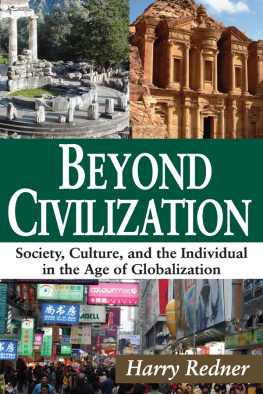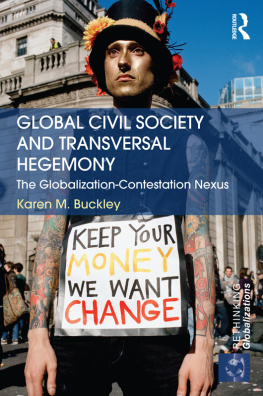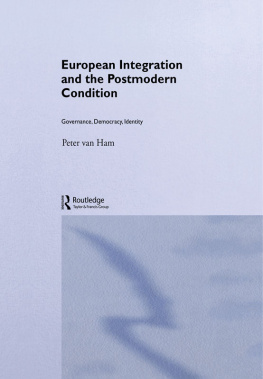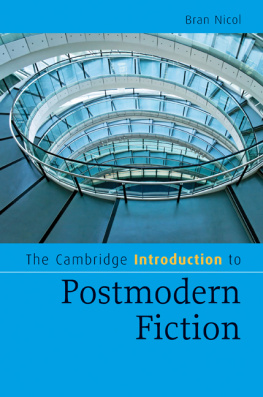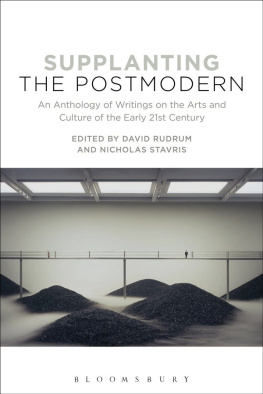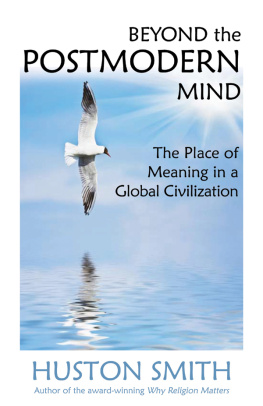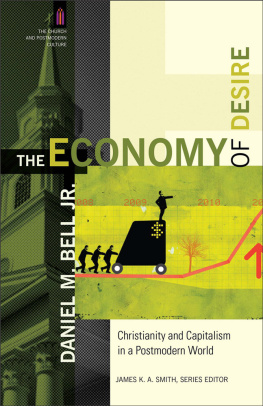History Without a Subject
NEW PERSPECTIVES IN SOCIOLOGY
Charles Tilly and Scott McNall, Series Editors
History Without a Subject: The Postmodern Condition, David Ashley
Rise and Demise: Comparing World-Systems,
Christopher Chase-Dunn and Thomas D. Hall
Freudians and Feminists, Edith Kurzweil
FORTHCOMING
Work Under Capitalism, Chris Tilly and Charles Tilly
History Without a Subject
The Postmodern Condition
David Ashley
University of Wyoming
For Guy Debord, Raoul Vaneigem, and their generation
New Perspectives in Sociology
First published 1997 by Westview Press
Published 2018 by Routledge
711 Third Avenue, New York, NY 10017, USA
2 Park Square, Milton Park, Abingdon, Oxon OX14 4RN
Routledge is an imprint of the Taylor & Francis Group, an informa business
Copyright 1997 Taylor & Francis
All rights reserved. No part of this book may be reprinted or reproduced or utilised in any form or by any electronic, mechanical, or other means, now known or hereafter invented, including photocopying and recording, or in any information storage or retrieval system, without permission in writing from the publishers.
Notice:
Product or corporate names may be trademarks or registered trademarks, and are used only for identification and explanation without intent to infringe.
A CIP catalog record for this book is available from the Library of Congress.
ISBN 13: 978-0-8133-1733-5 (pbk)
ISBN 13: 978-0-8133-2732-8 (hbk)
Contents
A Flittie Award from the University of Wyoming gave me the time to work on this project. I thank the members of my department for nominating me.
Part of this book was completed at the University of York during a sabbatical leave. I am grateful to Andy Tudor, head, and the members of the Sociology Department at York for providing me with an office and with other facilities.
Several peopleChet Meeks, Pem Davidson Buck, Charles Tilly, David L. Harvey, David Dickens, Richard Machalek, and Lynne Bergread the book in manuscript form and helped me alter or remove some of the weaker parts of the argument. They will not be entirely satisfied with the result, but they did help me write a better book. Earlier versions of various chapters were shared with students in my graduate theory seminar, and they, too, helped me formulate my ideas a little more clearly.
Dean Birkenkamp, Jess Lionheart, Melanie Stafford, Jill Rothenberg, and Lisa Wigutoff gave me every assistance at Westview. It was a pleasure to work with them.
My wife, Yarong Jiang Ashley, gave me continuous support and encouragement. I could not have finished this book without her help.
David Ashley
What can one expect from man, considering hes such a strange creature? You can shower upon him all earthly blessings, drown him in happiness so that therell be nothing to be seen but the bubbles rising to the surface of his bliss, give him such economic security that he wont have anything to do but sleep, nibble at cakes, and worry about keeping world history flowingand even then, out of sheer spite and ingratitude, man will play a dirty trick on you.
Fyodor Dostoyevsky, Notes from Underground (1961, 114)
Over the past couple of decades, the number of books and articles on postmodernism has increased exponentially. Although the topic is popular among many younger academics and intellectuals, it is not always regarded as enthusiastically by the older generation. As the late Ernest Gellner (1992, 22), professor of social anthropology at Cambridge University and a self-proclaimed stickler for Enlightenment Rationalist Fundamentalism, complained: Postmodernism is a contemporary movement. It is strong and fashionable. Over and above this, it is not altogether clear what the devil it is. Yet whatever it might be, postmodernism has transformed intellectual and academic debateparticularly in Britain, Canada, Australia, and the United States. In the West at least, postmodernism appears to have affected the whole of culture. According to one authority, there is hardly a single field of intellectual endeavour which has not been touched by the spectre of the postmodern (Docherty 1993, 1). Indeed, the topic has become a shibboleth for tendencies in film, theatre, dance, music, art and architecture; in philosophy, theology, psychoanalysis and historiography; in new sciences, cybernetic technologies, and various cultural lifestyles (Hassan 1987, xi).
Some have claimed that postmodernism reflects a new era. David Harvey (1989a, vii), for instance, believes that since about 1972 western societies have experienced a sea-change in cultural as well as political-economic practices. According to , 36), the effects of such change are now obvious; postmodernization, they warn, is well under way and the denouement of modernity is imminent. Somewhat inconsistently, Crook et al. adopt familiar sociological concepts and theories, thereby implying that postmodernization can be grasped in modern terms. By contrast, Zygmunt Bauman (1992) argues that postmodernism has undermined all confidence in universal projects of intellectual explorationincluding modern sociology. For Bauman (1993, 134), postmodernity means the end of ultimate truth, the end of the political or missionary ambitions of art, the end of dominant style [and] of artistic canons. Steven Seidman (1994a, 299) agrees: Central to postmodernity, he insists, is the abandonment of any basis for claiming certainty or for appealing to universal standards of truth, goodness, and beauty.
Unlike Harvey or Crook and colleagues, Jean-Franois Lyotard (1984; 1991, 34) has denied that postmodernism is some new stage in human history, and he points out that the issue in any case is largely irrelevant, for theorists who choose to describe something as pre or post something else still have to examine that now of the present from which one is supposed to be able to achieve a legitimate perspective on a chronological succession (1991, 24). According to Lyotard (2728), postmodernism can be defined as the extension and elaboration of playful, experimental, and nonserious forms of expression, examples of which can be found among all leisured classes, even in the pagan world.
If theorists have been unable to determine whether postmodernism reflects the end of an epoch, they have nonetheless agreed that postmodernism has transformed action and experience in quite diverse spheres. Postmodernism, for example, has supposedly transformed medicine (Fox 1993), influenced criminology (Schwartz and Friedrichs 1994), challenged theology (Cox 1984), touched engineering (Platten 1986), and helped to develop new models of spatial organization (Scott 1988; Soja 1989). In legal studies it has created postmodern legal feminism (see Greensberg 1992, xxvii; Frug 1992). In theater it has eclipsed both character and plot (Fuchs 1983; Eco 1984). In dance it has created a radically changed political and social context for performers and spectators alike (Daly 1992, 55). Whereas some intellectuals have tied postmodernism to new theories of economic value (Mirowski 1991), others have argued that its main outcome has been to break the effect of modern architecture on the built environment (Jencks 1987; Porphyrios 1989). For Paul Rabinow (1986), postmodernism has radicalized anthropology. Yet for at least one business professor, it has infiltrated the academic study of management and organizations (Wilmott 1992, 58). According to Nancy Fraser and Linda Nicholson (1993, 429), A postmodern-feminist form of critical inquiry [is] the theoretical counterpart of a broader, richer, more complex and multilayered feminist solidarity. Postmodernism, above all, is associated with the emergence of the gender-flexible and playful subjects (Hennessy 1995, 271) who have allegedly replaced the old-fashioned centrifugal self (McHale 1992, 259).




